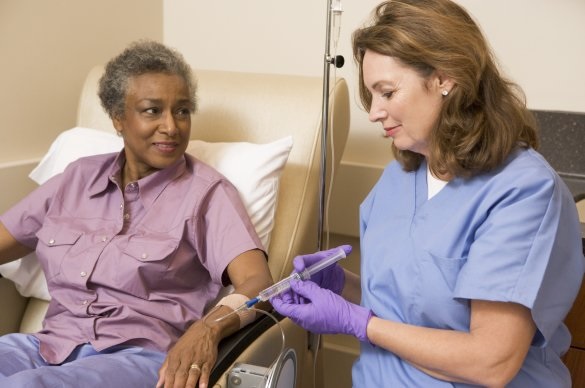Dealing with cancer is an incredibly challenging experience for patients and their families. Not only do they have to face the physical and emotional toll of the disease itself, but they often have to cope with the debilitating pain that comes along with it. Cancer pain can be severe and persistent, making it difficult for patients to carry out their daily activities and enjoy their lives. This is where a cancer pain clinic can play a crucial role in improving the quality of life for these patients.
What is a Cancer Pain Clinic?
A cancer pain clinic is a specialized medical facility that focuses on the management and treatment of pain in cancer patients. These clinics are staffed with a multidisciplinary team of healthcare professionals, including doctors, nurses, pharmacists, and psychologists, who work together to provide comprehensive pain management services.
Comprehensive Pain Assessment and Management
One of the key advantages of a cancer pain clinic is their ability to conduct a thorough assessment of the patient’s pain and develop a tailored treatment plan accordingly. This involves not only looking at the physical aspects of pain but also considering the psychological, emotional, and social factors that can influence a patient’s pain perception and experience.
The doctors and specialists at a cancer pain clinic are trained to assess the intensity, location, and duration of the pain, as well as its impact on the patient’s daily life. They may use various tools, such as pain scales and questionnaires, to gather information and gain a comprehensive understanding of the pain.
Additionally, cancer pain clinics recognize the significant role that psychological and emotional factors play in pain perception and management. They may work closely with psychologists or psychiatrists to assess the patient’s mental health and identify any underlying issues, such as anxiety or depression, that may be exacerbating the pain.
Social factors, such as the patient’s support system and access to healthcare resources, are also taken into consideration. Cancer pain clinics may collaborate with social workers or case managers to ensure that patients receive the necessary support and resources to manage their pain effectively.
Access to Specialized Expertise
Another significant benefit of cancer pain clinics is the access to specialized expertise that they offer. The healthcare professionals working in these clinics have extensive knowledge and experience in managing cancer pain, allowing them to provide the most up-to-date and evidence-based care.
Improved Pain Control
One of the primary goals of a cancer pain clinic is to achieve better control of pain for patients. By working closely with patients and regularly monitoring their pain levels, the healthcare professionals in these clinics can make adjustments to the treatment plan as needed to ensure optimal pain relief.
In addition to pain management, cancer pain clinics also aim to improve the overall quality of life for patients. This includes addressing any physical, emotional, or psychological factors that may be contributing to the pain experience. These clinics may offer a range of services such as counseling, physical therapy, and complementary therapies to help patients cope with their pain and enhance their well-being.
Furthermore, cancer pain clinics play a crucial role in educating patients and their families about pain management strategies and techniques. They provide information on medication usage, potential side effects, and alternative therapies that can be used alongside conventional treatments. This empowers patients to take an active role in their pain management and make informed decisions about their treatment plan.
Emotional and Psychological Support
Cancer pain can take a toll not only on the physical well-being of patients but also on their emotional and psychological health. The multidisciplinary team in a cancer pain clinic includes psychologists who are trained in providing emotional support and counseling to patients and their families.
Improved Communication and Education
A cancer pain clinic can also bridge the gap in communication between patients and healthcare providers. The healthcare professionals in these clinics take the time to listen to patients’ concerns and provide them with the information they need to better understand their pain and treatment options.
This open line of communication allows patients to feel more comfortable discussing their pain symptoms and any challenges they may be facing. It also enables healthcare providers to offer personalized care and develop tailored treatment plans that address the specific needs and preferences of each patient.
In a cancer pain clinic, healthcare professionals are well-versed in the various pain management techniques and therapies available. They can educate patients about the different options, such as medications, physical therapy, nerve blocks, and complementary therapies like acupuncture or massage. By explaining the benefits and potential side effects of each approach, patients can make informed decisions about their pain management.
Furthermore, cancer pain clinics often provide additional support services, such as counseling and support groups. These resources can help patients cope with the emotional and psychological aspects of living with cancer-related pain. By addressing the whole person, not just their physical symptoms, cancer pain clinics contribute to a comprehensive approach to patient care.
Conclusion
Living with cancer pain can be an overwhelming and distressing experience, but a cancer pain clinic can make a significant difference in improving the quality of life for patients. By providing comprehensive pain assessment and management, specialized expertise, improved pain control, emotional and psychological support, and better communication and education, these clinics offer a holistic approach to pain management that addresses the unique needs and circumstances of each patient.
